This is a response to Archpriest Alexander Schmemann’s article, “The Church and Church Structure: Regarding Archpriest Polsky’s book The Canonical Position of the Supreme Church Authority in the USSR and Outside of Russia.”The emphasis in the text is done by the editor.
The following article reflects a wish to explain how we, the sons of the Russian Church, understand our Church position and the Church duty that emerges from it. This article is a response to the article in Tserkovnyi Vestnik (Church Messanger) for 1949 whose authors, the editor Fr. Alexander Schmemann and others, come out against the Russian Church Outside Russia with the intention of undermining trust in its canonical foundations. They assert that there exists an inviolable and eternal principle of Church life – this is the principle of territoriality, or local church rule; that we, the emigration, unlawfully “founded” and “are founding” churches, that a “Church beyond borders” is a contradictory word combination. “… something paradoxical took place. The Council of Bishops, officially naming itself “Outside the Borders”, in other words, not having its own territory, divided the whole world into dioceses and regions and called its members bishops of Brazil, Canada, Australia, and so on. In other words, it founded local churches.” “The Ecumenical Councils,” writes Mr. Meyendorff, “divided up the universe between five patriarchs, entrusting the first patriarch in each half of the Christian world with the care over the churches found among foreigners. Today only the Constantinople rules over these churches and grants them autocephaly when they attain full maturity.”
“About the Russian people in the homeland and diaspora” – this, it seems, is how they pray not only in the part of the Russian Church under the Bishops’ Synod Outside Russia, but also in groups not belonging to it. The state of diaspora hasn’t ended, it continues.
The exodus into the diaspora began in 1917. The flock, middle clergy, monastics, and bishops found themselves beyond the borders of the Russian land – precisely the Russian land, and not the Russian Church, since the Church doesn’t have any contoured borders, neither horizontally nor vertically.
Should the flock have scattered, dispersed, and dissolved into other local Orthodox churches? But what remained more important in its refugee status than preserving unity in its church allegiance, national outlook, and way of life? They fled so that at the price of their material and other sacrifices they could preserve their other immaterial and ideological possessions, but not in order to lose their unity with the Russian people. The first thing that those who found themselves in the diaspora did was to come running to their archpastors as leaders of their Mother Church, gathering like sheep to their shepherd.
Did those Russian archpastors who found themselves in the diaspora have the right to accept this flock into its care? Let us respond with a question – did they have the right not to feed it, gather it in prayer, instruct it, and guide it spiritually? In his consecration a bishop receives the duty – not a right but a duty – to instruct, perform services for, and rule his flock, saying with the apostle, “If I preach the gospel, I have nothing to boast of… woe is me, if I do not preach the gospel!
Is This not Their Territory?
A shepherd takes care of his sheep in thickets and mountains, he protects them and answers for them, leads them to fertile ground, and guards them against wolves. “Drive my sheep away from your territory, if you have the right to do so, and then I will leave as well.”
And no one has the right to say to the shepherd, “Your sheep have wandered into my territory, they belong to me.” Such a demand would be fundamentally unjust, it would be unchristian.
From what bishop did the Russian bishops and members of their flock who were wandering without a place or territory take away his church, his flock, his bread and butter, bringing disorder into Church life?
But can a bishop, according to church law, be without a territory? This depends on whether or not people can be without a territory.
The Church is people, not the territory. The territory doesn’t enter into the Church, it doesn’t belong to the Church. Churches are called “local” because particular members of a particular church reside in a definite territory. “Borders of a region” is not the same as borders of churches, just as the size of territory doesn’t signify the size of a church. If a bishop is appointed to a known place this occurs to indicate his flock’s place of residence. His rights are delimited here for the benefit of Church life and not to designate episcopal ownership. He is “the people’s bishop.” The Church does not aim to divide up the earth with the help of surveyors. What the Church needs is peace, order, and no offending of each other.
If people in any country, having been united in specific groups, would start moving to a new place every year or every five or ten years, and if these groups were in massive numbers, and if such moves would become regular, the Church would be obliged to establish not only traveling parishes, which has already happened, but also traveling dioceses, naming them not according to localities of the diocese but perhaps according to banners, numbers, or holy names. The establishment of order is in the Church’s hands.
This is the reason why at certain moments refugee bishops either bear titles of their previous dioceses conditionally, or they don’t have territorial titles, or they acquire new territorial designations according to the places where their flock is located. Old territorial designations are for convenience, but in no way are they for some sort of safeguarding of their ownership. If, instead of the old geographic designations such as “Argentinian” or “Australian” some kinds of new ones would be invented, then, perhaps, this would stop frightening certain professors of Canon Law.
Can there be a bishop without a territory? This question was posed to the representative of the Council of the Church Outside Borders in an American courtroom. The judge himself answered it: “And Christ didn’t have territory, and He was a wanderer.” A diocese that changes its location and wanders – is this phenomenon against the Gospel?
“Then the woman fled into the wilderness, where she has a place prepared by God, that they should feed her there one thousand two hundred and sixty days.” (Rev. 12:6) This speaks of the Church, fleeing the serpent’s persecution.
Would you Apply to Her the Duty to Remain in Her Territory?
How wonderfully and in a way that is worthy of a Christian did the blessed hierarchy of the Serbian Church understand its canonical position in the issue of the Russian Church’s diaspora. It accepted the wandering Church into its house without any rigorous conditions, warmed its members up and fed them, didn’t lay any claims to the Russian emigration, and didn’t set a fixed time when it would have to cease regarding itself as a flock of the Russian Church. Nor did it tell the Russian hierarchy when it should cease to exist.
Was it necessary for the Russian archpastors to take their flock into their hands only in order to hand it over to other local churches? But who gave them the authority to do so? How would they have answered in the future to the Russian Church? Aren’t its spiritual children precious to each local church? Why is it appropriate for the Church of Constantinople to take care of its children solicitously, as it has always been in history, but is it 1not appropriate for the Russian Church?
And the Russian Church will ask and demand of the bishops who had done this during its captivity the return of its churches, property, and flock.[1] In the Tserkovnyi Vestnik articles indicated by us in the introductory paragraph an excerpt is cited twice from a 1927 letter from the Antiochian Patriarch Meletios to the Bishops’ Council of the … Continue reading
There are people who think that in the emigration the Bishop of Taganrog has the right to take care of only the flock that came from Taganrog, and the Bishop of Kherson – those who came from Kherson. This is not so for the Church’s mindset. A Russian bishop is betrothed to the Russian Church, to the Russian flock – not to a title designated by the name of a diocese, and not to a city or place of residence, but to the people by the blessing of the Russian Council of Bishops. He must be, wherever he may find himself, a shepherd of his Russian flock, again in agreement with the blessing of the Council of Russian bishops. [2]There can only be one response to the question “Do you belong to the Russian Church?” on the part of the bishops of the Western European Russian Exarchate of the Church of Constantinople – … Continue reading
It is necessary for not only bishops but for each one of us, ordinary Church members, and ordinary clergy to determine if we belong to our native Russian Church.
We are separated physically from the Church in our homeland by the iron curtain. We regard its leading hierarchy as unfree, we don’t submit to its orders and cannot do so since the Communist government makes it its weapon. In its actions we discern a policy of concealment of truth and hypocritical extolling of the antichristian regime. But we do know that the Russian Church is alive. The authentic life of this Church proceeds below its visible surface. The Church is not incarnated in its current leadership and is not identified with it. It lives through an unknown number of pure, cross-bearing, pious, and courageous offspring who have not bent their knees before Baal. It is for these confessors and martyrs that the Lord endures the weakness and fall of great numbers. It lives through the prayers of its heavenly members, the bishops, monastics, and righteous ones from the beginning of its existence. Those of us beyond the borders should remain and do remain in the single organism of the Russian Church, in a single spirit, a single-family. We know and believe that the moment will come when the truthful and authentic voice of the Russian Church will sound through the lips of its resurrected hierarchy.
What expresses my genuine belonging, beyond my homeland’s borders, to my native Church? It is belonging not only in spirit, in sighs, and in mere desire, but realistically to its conciliar organism. I can belong to it only through the hierarchy of the Russian Church, the hierarchy of Russian continuity, the bishops who received their authority from the Council of Russian Bishops, who preserved their connection through their continuity and included us into an organic link with the Russian Church.
We bear the Russian Church within ourselves, and each of our Russian Orthodox families in the diaspora is a small part of the Russian Church – but only through the bishops of the Conciliar Russian Church Outside Russia.
Do we Need This Connection With the Russian Church?
To whatever church we might belong, we are in the body of Christ’s Church. However, the question of what local church we might belong to, in which one we would live, and which one would feed us, is not an idle one. It could become idle when the question would concern into which one we would be pigeonholed.
There was a time when people leaving their homes into the unknown would bid a tearful farewell to their family promising not to forget each other, pledging loyalty, and taking along a symbolic handful of native soil. Then life gradually would make itself felt. And so the people settled down little by little, became accustomed to the new conditions, and took on new citizenship to ease their existence. We do not have the right to condemn them. But should the Russian clergy encourage a break? Should they themselves lead in this direction? Ask people! They will protest. They regard the Church as a cardinal link in the face of which the weakness of other links isn’t as material. Will we deceive their trust and will we sever this link?
“If I forget thee, O Jerusalem, let my right hand wither.” At one point the Jews, having been taken from Palestine into Babylonian captivity, experienced for eighty years something akin to our dispersion. Likewise in captivity, they were gradually assimilated with the local population, many became free citizens, and some became denationalized while others steadfastly preserved their particular character. By the time of their return to their natïve land almost all of them lost their native tongue and found themselves unable to understand the language of their holy books. Judaic culture did not last, but the Jewish church did. And it is understandable why it did. Loyalty is a moral characteristic. Where else can it be preserved, if not in religion, the keeper and preacher of morality? Religion bore the banner of loyalty.
Bishops and Priests are Stewards of Christ. “It is required in stewards than one be found faithful.” (1 Cor. 4:1-2)
It would be sad if in our day Russian secular society in diaspora would preserve loyalty to its sphere better than that of the Church. It will be sad if the servants of the Church will be subject to the admonition that they were the first to forget their Jerusalem and lowered the banner, and that while the secular diaspora keeps aflame, suffers in spirit, and fights for the truth, the church diaspora has disarmed and is searching for a harbor.
I am convinced that this will not be the case. In France the Russian secular circles are guilty of inclining a part of the Russian hierarchy to break away from the basic ecclesiastical nucleus outside Russia. The conciliar Russian ecclesiastical mindset won’t follow this path. It will remain steadfast even when the Russian national and political centers will fall apart, grow cold, and will lose their activism.
What sense is there in the existence of the part of the Russian Church that has gone off into the diaspora? It conducts the struggle for the Church’s freedom. And it is itself a free voice of the
Russian Church. Such a voice must exist. A departure into another local church is a refusal to struggle, or an acknowledgment that the current state of affairs is normal, or else an acknowledgment of powerlessness in the struggle with evil. This is the final point in the history of defending the truth and the rights of the Church. The war is finished, it was lost, and we are stepping away. This may be followed by either total indifference, or at best a peaceful exchange of opinions, a discussion. We observe both, in fact, in the two groups which have departed from the Bishops’ Synod. It is improper, having entered into the harbor of a neutral nation, to use it for one’s military actions. “I will not be silent for the sake of Zion and I will not rest content for sake of Jerusalem” – these words were not written for them.
The tearing apart of the webs of falsehood, into which the Church is dragged into in our homeland, is a duty emerging from the Church’s moral responsibility, the guarding of the dignity and honor of our Mother Church.
Strange views are expressed in the part of our Church’s society that broke off from the basic ecclesiastical nucleus. They find it uncanonical that the Russian Church is a pioneer of Orthodoxy in Australia, Brazil, and other countries outside its territory. This honor must belong, they say, to the “Ecumenical Patriarchate.” So does this mean that in the places of the diaspora we must die down and stop living a Church life until the Eastern Patriarchates convert the native populations of those countries to Orthodoxy? Or did our bishop, ministering there to his own Russian flock take the key and close access everywhere to the missionaries from the Eastern Churches to a particular country?
We don’t deny the dignity and significance of the Constantinople Patriarchate, the oldest one, and we don’t wish to disparage it or take up the view of Professor Troitsky, who calls the Patriarch of Constantinople “Patriarch of Istanbul.” First of all, the Church of Constantinople is the mother of the Russian Church and of the Orthodox Churches of the Southern Slavs. Secondly, its historical significance remains for eternity just as an apostle retains apostolic dignity, both in bondage and after his repose. As hoary with age, as one of the oldest in the family of churches, with its weighty word it acts as an authority for younger churches, its daughters. However, there is no justification for the theory that the territory of this patriarchate extends to all countries of Western Europe, let alone to the whole world. If that were so the religious history of Western Europe over the second millennium would have turned out very differently – Orthodoxy would have had a place of honor there for a long time.
Recognition of the Patriarchate’s authority cannot lead us to a recognition of the expediency and vitality of a plan to have the Church of the Russian diaspora enter the local Church of Constantinople, even if we were free of obligations to our home Church.
Does the Church really need an overlay, some sort of legalistic formula? Here and there are different languages, and the Patriarchate has other traditions in church life, another way of reading and singing in church, its own liturgical peculiarities, and, finally, numerous external differences. The same is true outside the church building — there are other methods of theological research, coming from another continuity of theological thought. This doesn’t stand in the way of mutual respect, but here we have two local churches territorially, historically, and nationally.
Yes, at the beginning of its history the Russian Church had organic unity with the Church of Constantinople. It received its birth from it, it was fed by its juices, and received everything from it – services, rules, books, and instruction. Its metropolitans were Greek in the first centuries. But the subsequent nationalization of the Church in Russia was a gradual exiting from this body of a Greek Local Church in the measure that this belonging was ceasing to be organic and was becoming nominal. That is how the liberation of our Church from its submission to Constantinople took place. [3]His Holiness Patriarch Tikhon didn’t recognize the transfer of the Churches in the Baltic nations to the Constantinople “Jurisdiction,” and likewise didn’t recognize the independence of the … Continue reading
In our day part of the Church went into a “jurisdiction,” submitting to the Patriarch of Constantinople. The apostolic canon says, “Bishops of any nation ought to know the first among them and recognize him as a head.” This action reflected the unwillingness of a part of the bishops of the Russian diaspora to recognize the first among them and their submission to a bishop of a foreign nation.
Supposedly the spirit of the holy canons is being complied with this way, according to the learned theologians and canonists of the Theological Institute in Paris. By simple reasoning, this is not so. Organic unity is destroyed, replaced by administrative submission. This is a replacement of a living link with a formal one, of a link with “church” with a link with “administration,” a sundering of the living bonds uniting all of us in the Church, instead of which a new bond enters – business correspondence with the patriarchal office
But the vital interests of those who have separated remain the same. The national coloring of church life is Russian as before. Not to mention chants, icons, church architecture, the entire order of services, and their appearance, and their very views and ideas are oriented toward the Russian Church. Their theologians use Russian theological literature – they even base their errors on Russian sources, as did the late Fr. Bulgakov. Why have they now stopped being a branch of the Russian Church and became the “Russian Exarchate” of the Constantinople Patriarchate?
Russian Church has its host of Russian saints, who were witnesses to its thousand-year history, to its representatives and preservers. This host is near and dear to all of the Russians of the diaspora, but it is far from the hearts of the Constantinople Greeks.
We are being reassured that the move of this particular small branch of the local Russian Church to another local church is a temporary phenomenon. But if it is recognized that this territory belongs to Constantinople, there can be no basis for leaving the jurisdiction of this patriarchate. This is demonstrated by experience. Bishop Savvatii, the Prague Exarch of Constantinople, received a denial of his request to join the Moscow Patriarchate. Apparently, this decision was guided by canonical considerations. And the Russian Exarchate of Western Europe will be denied the possibility of an exit, if it doesn’t do this on its own initiative.
The creation of the Russian Exarchate commits the Constantinople Patriarchate in many ways. Now the entire Russian Church will expect and demand a clear and weighty statement regarding “Sophianism” and the whole theology of Fr. Bulgakov. The Constantinople Patriarchate has taken on the responsibility for the purity of Orthodox teaching in the entire region of its Patriarchate. The glory of its theologians is its glory, and the heresies of its theologians are its heresies. This task demands much work of her in studying all of Russian theology. By the way, there is something positive in the prospect of Sophianism appearing before the judgment of the Christian Orthodox East.
Our wandering continues and hasn’t yet passed its forty-year landmark. We preserve inner unity, based on the unification of spirit, ideas, feelings, will, and mutual understanding in our diaspora. We are united by the single leadership of the Russian Conciliar Orthodox Church Outside Russia, which is standing on a firm canonical foundation. On one hand, it does not tear us away from our native Russian Church, and on the other hand, it is genuinely free of pressure from any nation, and, like a bird gathering its fledglings, it gathered us, who were dispersed throughout the whole world, into one Church Outside Russia. And those groups are now numerous among the Russian emigration, which due to the quirks of fate became part of other nations and became their citizens, and even they find a link with their native Russian Orthodox elements through the free Russian Church Outside Russia.
Professor G. A. Znamensky, in his greeting to the recent Third Diocesan Assembly of the Conciliar Church of North America and Canada, expressed beautifully our firm canonical and ideological legal consciousness and the pathos of loyalty of the members of the Russian Orthodox Church who are under the rule of the Bishops’ Council Outside Russia.
“Glory be to God! Our Conciliar Diocese (in America), which is uncompromisingly loyal to our supreme and lawful leadership, did not split off from the One Orthodox Russian Center, encompassing all churches outside Russia, as certain people claims erroneously. It didn’t depart one iota from the administratively canonical structure which had been established in our church matters, but, on the contrary, at the most critical moment of confusion of certain people, and of the refusal and departure of others from the miracle of church unity and peace, acquired through great effort, our conciliar diocese valiantly took up and pressed firmly to its heart the holy banner of conciliarity which had almost ended up in the air. And they guard it piously as a precious treasure, and see only in it the start and completion, the alpha and omega, of the Church’s flourishing, peace, joy, and mutual love of all its living parts, in other words, those faithful children of our crucified native land and Mother Church who are dispersed throughout the whole world.”
“Glory Be to God! By virtue of such a confession of the Church’s path that is open, simple, and accessible, even to infants in the faith, all of the admonitions on the part of those thirsting for the restoration of church unity that was and is being disrupted does not apply to our Conciliar Diocese, for it didn’t disrupt the peace with anyone, didn’t bring any changes or corrections to the existing status quo but remained, as it had stood and had been, on the firm and inviolable rock of its confession, its unity with the entire Church Outside Russia and submission to the Supreme Church Authority.”
“Glory be to God! And the double-edged and dangerous attempts of a certain part of the clergy leave our lawful Supreme Church Authority and be submitted to hardly free patriarchs and heads of other local churches are foreign to our Conciliar Diocese.”
“Didn’t we receive the right to this in the days of our Great Exodus from our lawful leader and sympathizer of the Russian Orthodox Church, His Holiness Patriarch Tikhon? Did His Holiness Patriarch Tikhon, who was still free at the time, bless us to scatter and dissolve Russian church people into local churches of other nationalities? No and again no!”
“Let us be faithful in the future as well to our church path and to the united Russian Church Outside Russia, which doesn’t imagine itself at all to be an independent or autocephalic church tree but just an organic part of our Mother Church of Russia, persecuted, crucified, and driven into catacombs as it is, but abiding steadfastly and valiantly on the conciliar stem of the entire Ecumenical Eastern Orthodoxy…” “Otchet o Tret’em Eparkhial’nom S”ezde Severo-Amerikanskoi i Kanadskoi Eparkhii v N’u-Iorke 23-25 oktiabrya 1949 g.”(Report of the Third Diocesan Assembly of the Diocese of North America and Canada in New York held on October 23-24, 1949 in New York in Russian).
Translated by Priestmonk Alexis (Lisenko)
Materials of the Ensuing Discussion Posted on This Website
1948. Archpriest Michael Polsky, “The Canonical Position of the Supreme Church Authority in the USSR”
1949. Priest Alexander Schmemann, “The Church and Church Structure: Regarding the book by Archpriest Polsky The Canonical Position of the Supreme Church Authority in the USSR and Outside Russia”
1949. Archpriest George Grabbe, “The Canonical Basis of the Russian Church Abroad”
1949. Bishop Nathaniel, “On the Destiny of the Russian Church”
1950. Priest Alexander Schmemann, “A Debate About the Church”
1950. Bishop Nathanael, “The Local Principle and the Unity of the Church”
1952. Priest Alexander Schmemann, “Epilogue”
References
| ↵1 | In the Tserkovnyi Vestnik articles indicated by us in the introductory paragraph an excerpt is cited twice from a 1927 letter from the Antiochian Patriarch Meletios to the Bishops’ Council of the Russian Church Outside Russia: “Beloved brethren! Is it possible to think of an “Orthodox Church Outside Russia” with a Council ruling over it? In what rules would the term ‘Church Outside Russia’ be found? From the canons and the Church’s centuries-old practice we know only of the borders of the Church.” But here is a confusion of concepts – we would call this wordplay if it came from a layperson. 1) The expression “beyond the borders” means “located beyond the borders of Russia” and not beyond its own borders. The authors of the Tserkovnyi Vestnik article pretend that they do not understand this. 2) As for the canons, they speak of the borders of episcopal regions, of diocesan boundaries, in other words, of the demarcation of bishops’ sphere of activity, which is not at all equivalent to the term “Church boundaries.” When one of the faithful or a bishop of the Church of Alexandria leaves Egypt, it could be said that he went beyond the diocesan boundaries but not beyond those of the Church, since the Church is the people.
Mr. Meyendorff comes to conclusions that are exceptional in their boldness, asserting that there is “an inviolable and eternal (author’s emphasis) principle of Church life: this is the principle of territorial or local rule over the Church.” We do not deny this principle, but if it had been eternal the Savior would have divided Palestine or the Roman Empire among the twelve apostles. It only remains to be amazed, reading the following: “The Ecumenical Councils divided up the universe between five patriarchs, entrusting the first patriarch in each half of the Christian world with the care over the churches found among foreigners. Today only Constantinople rules over these churches and grants them autocephaly when they attain full maturity. Autocephaly is also usually granted with the development of statehood by Christian peoples. Thus, over the past decade the Ecumenical Throne granted autocephaly to the Serbian, Greek, Romanian, Albanian, and Bulgarian Churches.” How foreign to the Church’s spirit are the concepts and notions that have grown in the new field of the Russian Exarchate of Western Europe! Where did papism come from into the Orthodox Church? Where are the princes of the Church who mercifully grant autocephaly to churches? Does the author take into account that his assertion of the rights of the Patriarch of Constantinople deprives the other patriarchates and all other Orthodox Churches any rights to apostolic mission in the universe? His words lead to the conclusion that the words “Go and teach all nations” apply only to the one “ecumenical” Constantinople Patriarchate. Another conclusion is that the Patriarch of Constantinople is the visible head of the Ecumenical Church, and has three small regions. Syria, Palestine, and Egypt (three old patriarchates) have extraterritorial rights, i. e. they are excluded from his ecumenical territory. A new area for theological research is opening up on the current question of “the Relationship Between the Ecumenical Church and the Ecumenical Patriarchate,” “The Boundaries of the Ecumenical Patriarchate and the Ecumenical Church.” |
|---|---|
| ↵2 | There can only be one response to the question “Do you belong to the Russian Church?” on the part of the bishops of the Western European Russian Exarchate of the Church of Constantinople – “No, we do not.” However, for some reason the Tserkovnyi vestnik Zapadnoevropeiskogo ekzarkhata (Church Messenger of the Western European Exarchate) calls itself a “Messenger of the Russian Church in Western Europe” in its French subtitle. |
| ↵3 | His Holiness Patriarch Tikhon didn’t recognize the transfer of the Churches in the Baltic nations to the Constantinople “Jurisdiction,” and likewise didn’t recognize the independence of the Church in Poland, which was received from him. Why? Because this was a violation of the organic principle in Church relations. These churches were part of the Russian Church and bringing the churches of the Baltic lands into the Church of Constantinople was an artificial maneuver. As for the Church in Poland, there is a good reason why the Tomos Constantinople gave it points out the organic connection with this Church through old Lithuania and Poland. |

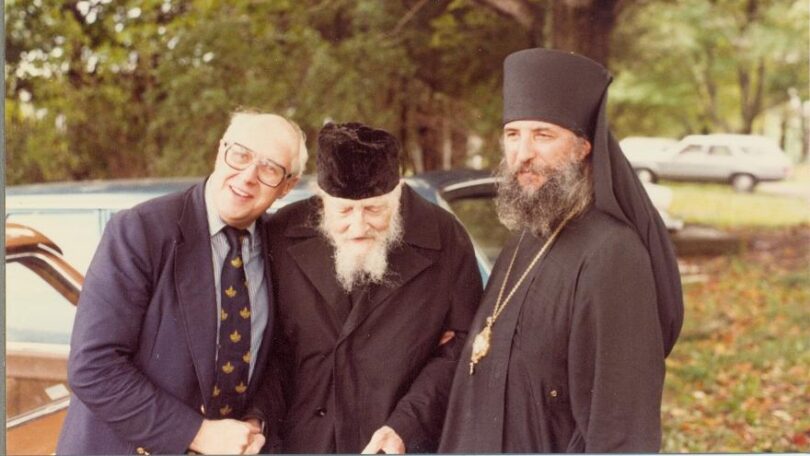

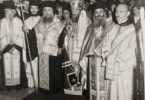


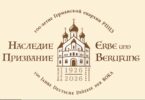

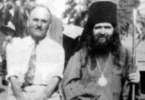
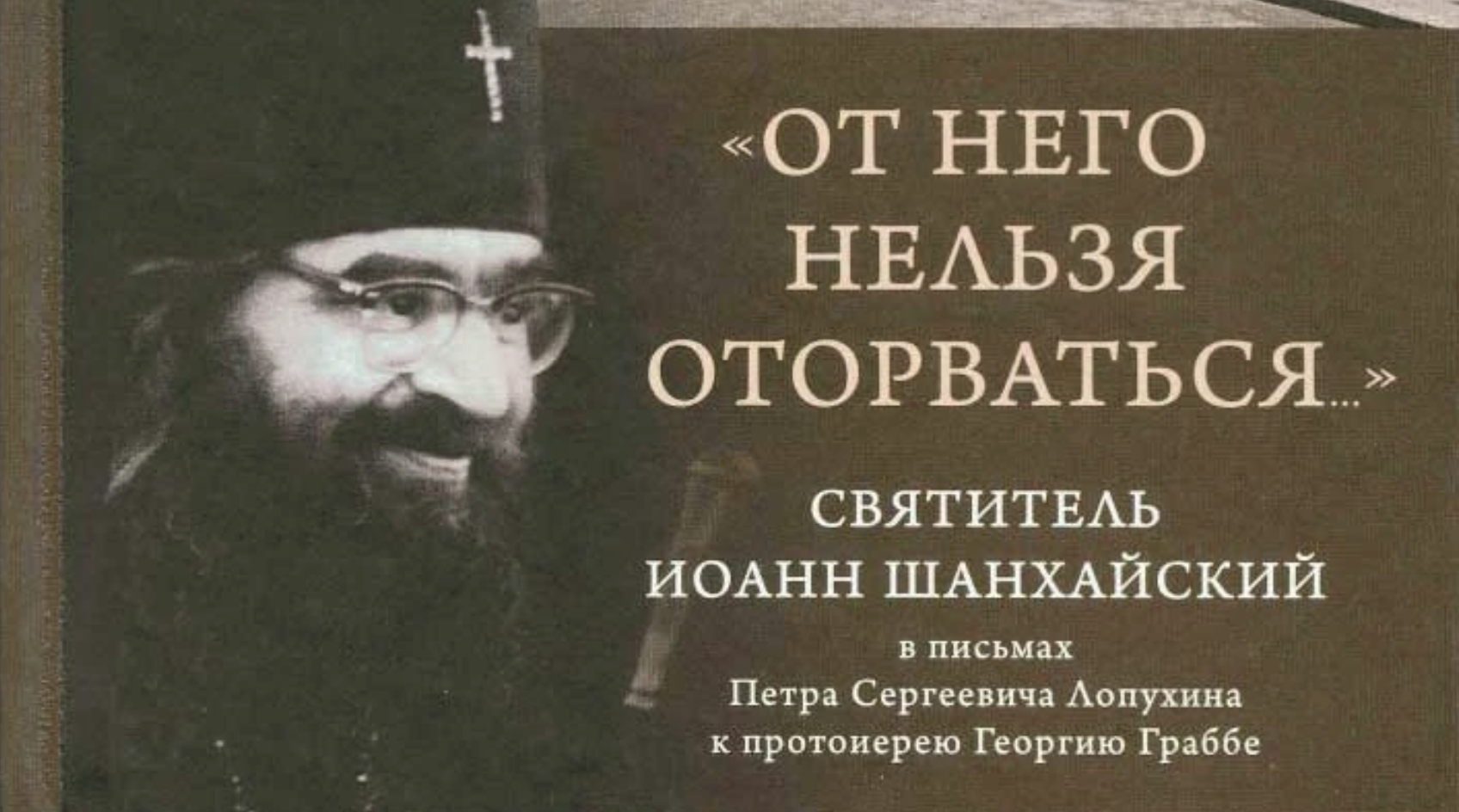

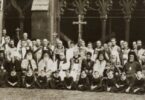
Seeing the title phrase “legal consciousness” reminded me of Ivan Ilyin’s book, translated into English, On the Essence of Legal Consciousness, which was not published until after his death. I think his sense of “legal consciousness” as a Russian Orthodox philosopher associated with the White Army closely connected with ideas of sobornost also developed by the Russian philosopher S.L. Frank in exile (among others). There may be some significance in that connection to the issues discussed here, in terms of the understanding of these terms and their relation to debate over territory and community in Church canonicity.
Thank you, Subdeacon Paul, greetings on St. Nicholas’ feast, and please keep sharing with us your reflections!
Pomazansky’s writings are a real treasure, it is a shame that he is not more widely known.